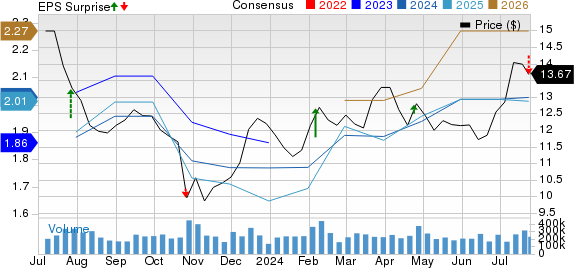Welcome to 'Mastering Series 7 Options: Your Key to Success,' a comprehensive guide designed to help you excel in the world of stockbroking.
The Series 7 exam is a critical milestone in obtaining a securities trading license, and the options section of the exam can be particularly challenging.
This article aims to equip you with the knowledge and tools necessary to navigate through the complexities of options questions and increase your chances of success in the exam.
We will explore different types of options questions, delve into options strategies and formulas, and provide insights into specific strategies for maximum gain.
By mastering Series 7 options, you will be well-prepared to thrive in your career as a stockbroker.
Key Takeaways
- Practicing options questions can increase the chances of success in the Series 7 exam.
- Options strategies questions cover areas such as puts, calls, straddles, spreads, hedges, and covered contracts.
- Options contracts require two parties and involve a zero-sum game.
- Buyers pay premiums to secure rights, while sellers receive premiums for shouldering obligations.
Exam Overview: Series 7 Options Questions
When it comes to the Series 7 exam, the options questions are known to be the most challenging. These questions test the candidate's knowledge and understanding of options strategies.
Approximately 35 out of the 50 options-related questions on the Series 7 exam deal with options strategies. These questions cover areas such as puts, calls, straddles, spreads, hedges, and covered contracts. Candidates are required to analyze options strategies and determine factors such as maximum profit, maximum loss, breakeven points, and the expected direction of stock movement.
To successfully navigate these questions, candidates must have a solid understanding of options basics, including the concept of intrinsic value and the rights and obligations of options contracts. Additionally, candidates should be familiar with various strategies and formulas for calculating gains, losses, and breakeven points in spreads.
Types of Options Questions Covered
The types of options questions covered in the Series 7 exam require candidates to demonstrate their knowledge and understanding of various options strategies, including puts, calls, straddles, spreads, hedges, and covered contracts.
To analyze options questions effectively, candidates should consider the following:
- Options Strategies:
- Puts and calls: Understanding the rights and obligations of both buyers and sellers.
- Straddles and spreads: Evaluating the potential profit, loss, and breakeven points.
Analyzing Options Questions:
- Maximum profit, maximum loss, and breakeven points: Calculating the potential outcomes of different strategies.
- Expected direction of stock movement: Assessing the impact of market conditions on options strategies.
Understanding Options Basics
Options contracts involve a zero-sum game and require two parties. In the world of options trading, investors are primarily focused on profiting from the trading of these contracts themselves.
Options exchanges function similarly to horse racing tracks, where people bet on races instead of buying or selling horses.
Understanding the basics of options is crucial for success in this field. This includes grasping the rights and obligations that come with options contracts, with buyers paying premiums to secure rights and sellers receiving premiums for shouldering obligations.
Additionally, knowledge of options pricing models and trading strategies is essential. Options pricing models help investors determine the fair value of options contracts, while trading strategies allow investors to make informed decisions about buying, selling, or hedging their positions.
Rights and Obligations in Options Contracts
Understanding the rights and obligations within options contracts is essential for mastering Series 7 Options. To delve deeper into this topic, let's explore the buyer's rights and the seller's obligations:
Buyer's Rights:
- The right to exercise the option or let it expire
- The right to buy or sell the underlying asset at the strike price
- The right to profit from favorable market movements
- The right to limit potential losses to the premium paid
Seller's Obligations:
- The obligation to sell or buy the underlying asset if the option is exercised
- The obligation to honor the terms of the contract
- The obligation to potentially incur losses beyond the premium received
- The obligation to fulfill the buyer's rights
Understanding these rights and obligations is crucial for successfully navigating options contracts. By comprehending the buyer's rights and the seller's obligations, individuals can make informed decisions and mitigate risks in options trading.
Strategies and Formulas for Options Success
To achieve success in options trading, it is essential to develop effective strategies and master the formulas that govern the outcomes of trades.
One important aspect of options trading is time value analysis, which involves assessing the impact of time on the value of an option contract. Traders need to understand how the time remaining until expiration affects the price of the option.
Additionally, calculating breakeven points is crucial for determining the level at which a trade will start to become profitable. Traders must know the formulas and acronyms for calculating maximum gain, maximum loss, and breakeven points in spreads.
Frequently Asked Questions
What Is the Passing Score for the Series 7 Exam?
The passing score for the Series 7 exam is 72%. To be eligible for the exam, candidates must be sponsored by a FINRA member firm and complete the necessary registration process.
Are There Any Prerequisites or Qualifications Required to Take the Series 7 Exam?
To take the Series 7 exam, individuals must meet certain prerequisites and qualifications. These requirements may include being sponsored by a FINRA member firm, having a clean regulatory record, and successfully completing the Securities Industry Essentials (SIE) exam.
How Long Is the Series 7 Exam?
The Series 7 exam duration is 225 minutes, consisting of 125 multiple-choice questions. Recommended study time varies, but on average, candidates spend around 100-150 hours preparing for the exam.
Are There Any Penalties for Guessing on the Exam?
There are no penalties for guessing on the Series 7 exam. However, it is important to note that incorrect answers may result in a lower score. It is recommended to answer all questions, even if unsure.
Can the Series 7 License Be Used to Trade Options on International Markets?
Yes, the Series 7 license can be used to trade options on international markets. However, it is important to understand the regulatory framework for options trading on international markets to ensure compliance with local rules and regulations.



Can you be more specific about the content of your article? After reading it, I still have some doubts. Hope you can help me.
Can you be more specific about the content of your article? After reading it, I still have some doubts. Hope you can help me.
Your point of view caught my eye and was very interesting. Thanks. I have a question for you.
Your article helped me a lot, is there any more related content? Thanks!
Thank you for your sharing. I am worried that I lack creative ideas. It is your article that makes me full of hope. Thank you. But, I have a question, can you help me?
Your point of view caught my eye and was very interesting. Thanks. I have a question for you.
Your article helped me a lot, is there any more related content? Thanks!
Your article helped me a lot, is there any more related content? Thanks!
Thank you for your sharing. I am worried that I lack creative ideas. It is your article that makes me full of hope. Thank you. But, I have a question, can you help me?
Your point of view caught my eye and was very interesting. Thanks. I have a question for you.
I don’t think the title of your article matches the content lol. Just kidding, mainly because I had some doubts after reading the article.
Can you be more specific about the content of your article? After reading it, I still have some doubts. Hope you can help me.
I like this web blog very much, Its a real nice
office to read and receive info.Blog range
You have mentioned very interesting points!
ps decent website.Blog monetyze
Thanks for sharing. I read many of your blog posts, cool, your blog is very good.
Thank you for your sharing. I am worried that I lack creative ideas. It is your article that makes me full of hope. Thank you. But, I have a question, can you help me?